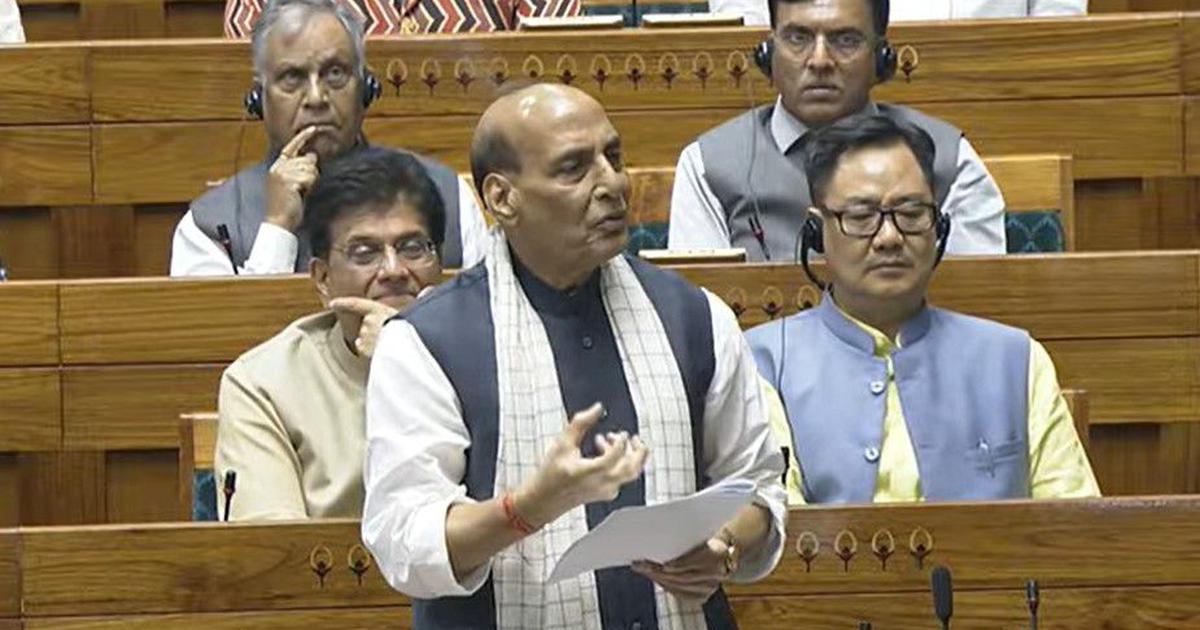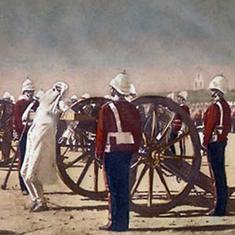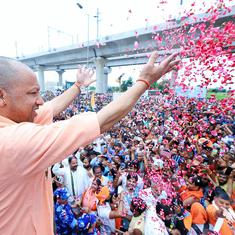Wrong to claim India halted Operation Sindoor under pressure, Rajnath Singh tells Parliament
The defence minister said that India decided to pause the military operation as it had achieved its political and military objectives.

Defence Minister Rajnath Singh told Parliament on Monday that it was “absolutely wrong” to claim that India halted Operation Sindoor under any pressure.
Opening a 16-hour debate in the Lok Sabha on the Pahalgam terror attack and Operation Sindoor, Singh said that India decided to pause its action against the terror camps in Pakistan and Pakistan-occupied Kashmir as it had achieved its political and military objectives.
The defence minister also said that nine terror camps were destroyed at the start of the operation of May 7, and that India has proof of damage caused inside Pakistan and Pakistan-occupied Kashmir.
Singh said that the operation on May 7 lasted 22 minutes and was “non-escalatory” in nature.
He added that the armed forces had taken all precautions to avoid civilian casualties.
“Before executing Operation Sindoor, our forces studied every aspect and chose the option that would cause maximum damage to terrorists, while ensuring no harm to innocent civilians,” he said.
Singh said that while the Opposition had questioned the government’s claims, they had not once asked how many Pakistani aircraft had been shot down. “I believe these questions do not reflect national sentiments,” he said.
“Their question should be whether India destroyed terror bases, and whether Operation Sindoor has been a success,” the defence minister said. “The answer is yes. They should ask whether any of our brave soldiers have been harmed in the operation. The answer is no.”
Tensions between New Delhi and Islamabad escalated on May 7 when the Indian military carried out strikes – codenamed Operation Sindoor – on what it claimed were terrorist camps in Pakistan and Pakistan-occupied Kashmir.
The strikes were in response to the terror attack in Jammu and Kashmir’s Pahalgam, which killed 26 persons on April 22.
The Pakistan Army retaliated to Indian strikes by repeatedly shelling Indian villages along the Line of Control in Jammu and Kashmir. At least 22 Indian civilians and eight defence personnel were killed in the shelling.
India and Pakistan on May 10 reached an “understanding” to halt firing following the four-day conflict.
New Delhi had on May 10 announced the decision to stop military action minutes after United States President Donald Trump claimed on social media that India and Pakistan had agreed to the ceasefire.
The US president had claimed that the ceasefire talks were mediated by Washington.
However, the Indian Ministry of Information and Broadcasting had said that the decision to stop the firing was “worked out directly between the two countries”, a position that New Delhi has maintained.
Trump has, however, repeated claims that his administration helped settle tensions between India and Pakistan.
Ahead of the Parliament session, the Congress had demanded discussions on a range of matters, including Trump’s repeated claims of having brokered the ceasefire.
On Friday, Trump claimed that five jets were shot down during the conflict between India and Pakistan in May. He did not specify which countries the aircraft belonged to.
While India has acknowledged suffering losses during the initial phase of the conflict, it has not disclosed the number of aircraft lost.
On Saturday, the Congress demanded that Prime Minister Narendra Modi make a statement in Parliament after Trump’s claim of five jets having been shot down.









